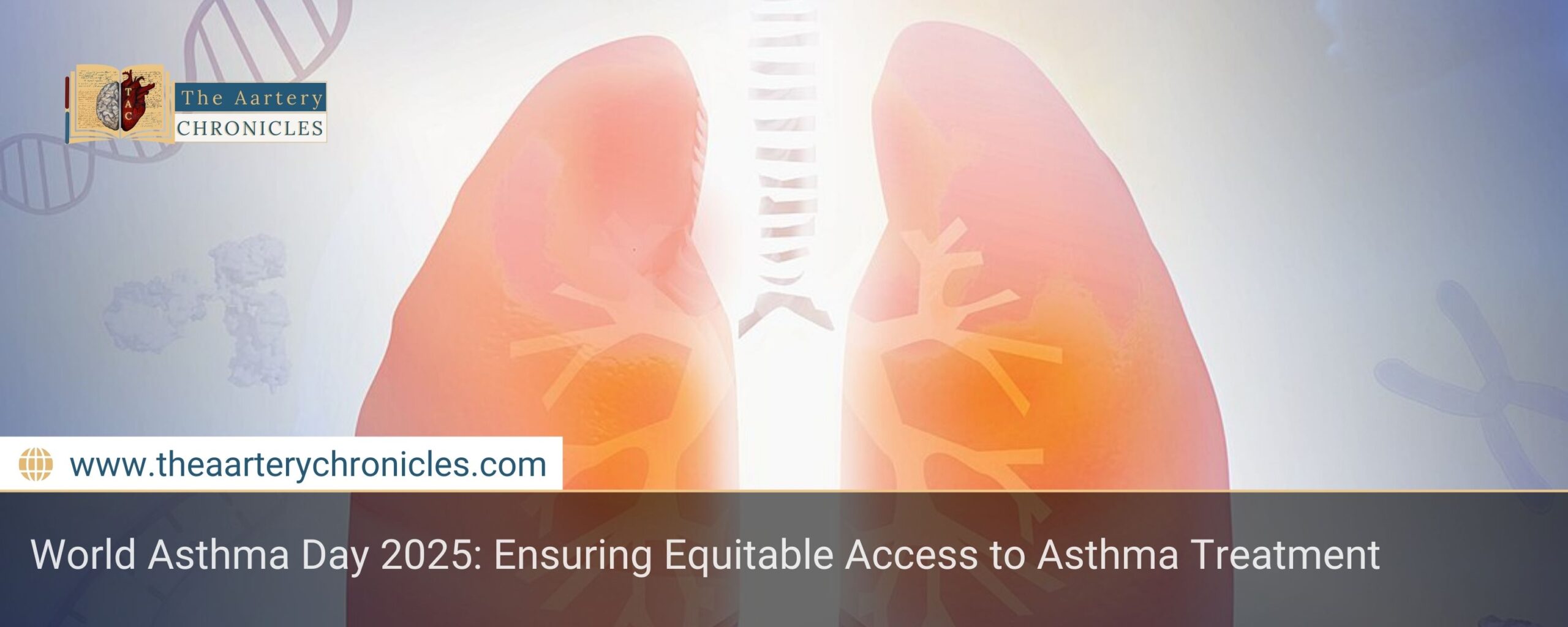

World Asthma Day 2025: Ensuring Equitable Access to Asthma Treatment
Introduction
On May 6, 2025, the world unites to observe World Asthma Day, a global initiative led by the Global Initiative for Asthma (GINA). This year’s theme, “Ensuring Equitable Access to Inhaled Treatments for All”, underlines a critical global health disparity: millions of people with asthma remain without access to the life-saving therapies that are necessary.
Asthma is a chronic inflammatory airway disease that affects over 260 million individuals globally. While it is manageable with proper treatment, it still accounts for approximately 455,000 deaths annually, the vast majority of which occur in low- and middle-income countries (LMICS). This is not due to the severity of the disease alone but largely due to unfairness in access to healthcare resources, especially inhaled corticosteroids (ICS), which are the cornerstone of asthma control.
Key Challenges in Asthma Care
1. Limited Access in LMICS
- Around 96% of asthma-related deaths happen in LMICS, where inhaled therapies are often unaffordable, unavailable, or both.
- A combination of inadequate healthcare infrastructure, inconsistent medication supply chains, and financial constraints prevents many patients from receiving even basic preventive therapy.
- Many regions rely heavily on oral steroids or over-the-counter bronchodilators, which may provide short-term relief but lead to long-term complications and uncontrolled asthma.
2. Underuse of Preventive Medications
- Despite strong global recommendations, inhaled corticosteroids (ICS) remain underprescribed, often due to a lack of awareness among both clinicians and patients.
- Misconceptions about steroids, over-reliance on short-acting beta-agonists (SABAS), and lack of proper diagnosis contribute to poor asthma control.
- The absence of structured asthma management plans further increases the burden of disease and the risk of life-threatening exacerbations.
Call to Action
To address these gaps, multi-sectoral collaboration is essential. Governments, healthcare professionals, NGOS, and pharmaceutical companies must work together to bridge the asthma treatment divide.
Healthcare Professionals Should
- Adopt guideline-based prescribing, ensuring that patients with persistent asthma are offered ICS-based controller therapies, not just relievers.
- Conduct regular inhaler technique checks, and invest time in educating patients on identifying triggers, using peak flow meters, and developing personalised asthma action plans.
- Advocate for impartial care and raise awareness about updated asthma treatment protocols among peers and communities.
Policymakers and Health Systems Should
- Make essential asthma medications, especially ICS and combination inhalers, available in national drug formularies and subsidise their costs.
- Launch nationwide asthma registries and awareness campaigns to track disease prevalence, outcomes, and medication adherence.
- Promote task-shifting strategies, where trained nurses and community health workers can support asthma care, especially in rural and underserved areas.
Education as Empowerment
- Education plays a pivotal role in improving medication adherence, reducing emergency visits, and enhancing overall quality of life.
- Asthma education programs in schools, workplaces, and communities can significantly lower the disease burden by identifying early symptoms and promoting a sturdy approach to treatment.
- Digital tools, mobile apps, and teleconsultation services can expand reach, especially in regions where face-to-face asthma management is challenging.
Conclusion
By embracing the 2025 theme — “Make Inhaled Treatments Accessible for ALL” — the global health community calls for equity in asthma care and a commitment to eliminating preventable asthma deaths through better access, education, and policy reform. enhance access to antiviral therapies are crucial in reducing the burden of hepatitis worldwide.
References

Author
Dr Darshit Jagdish Patel








